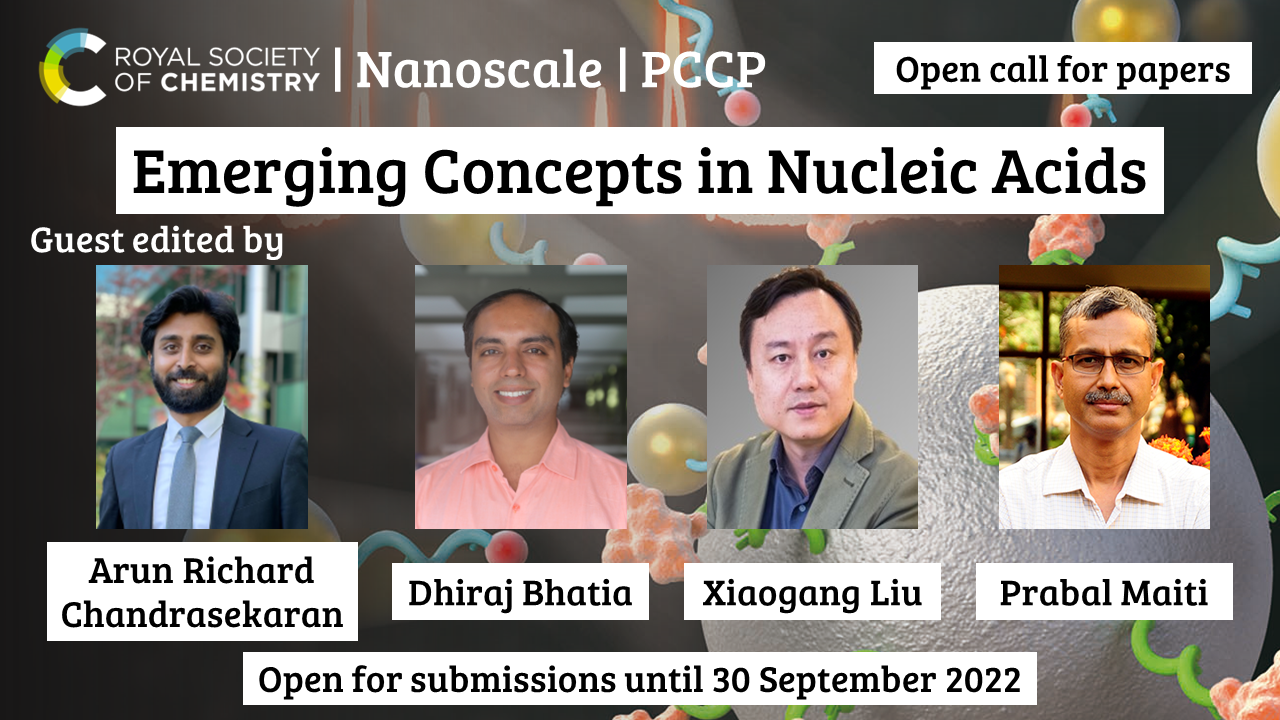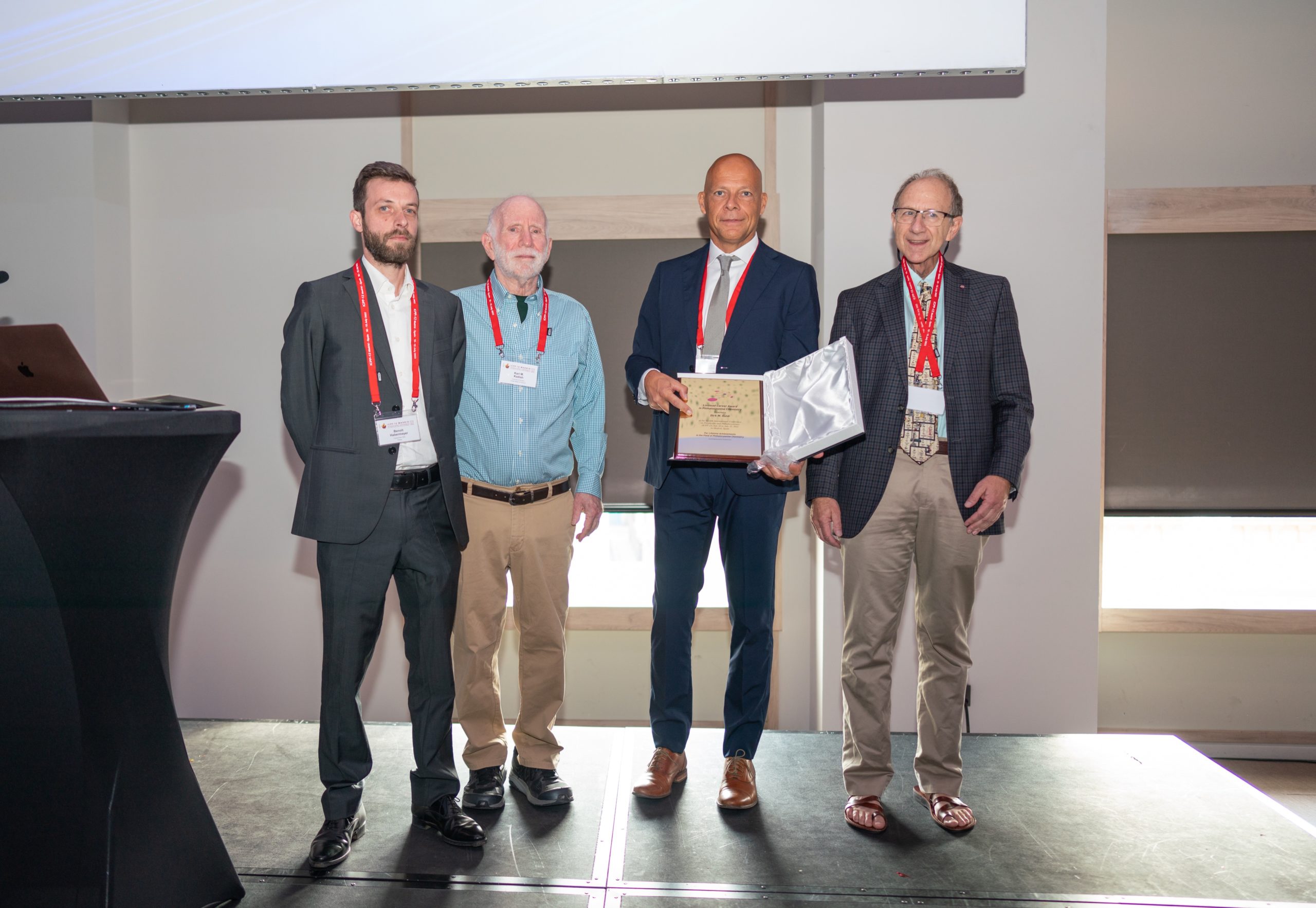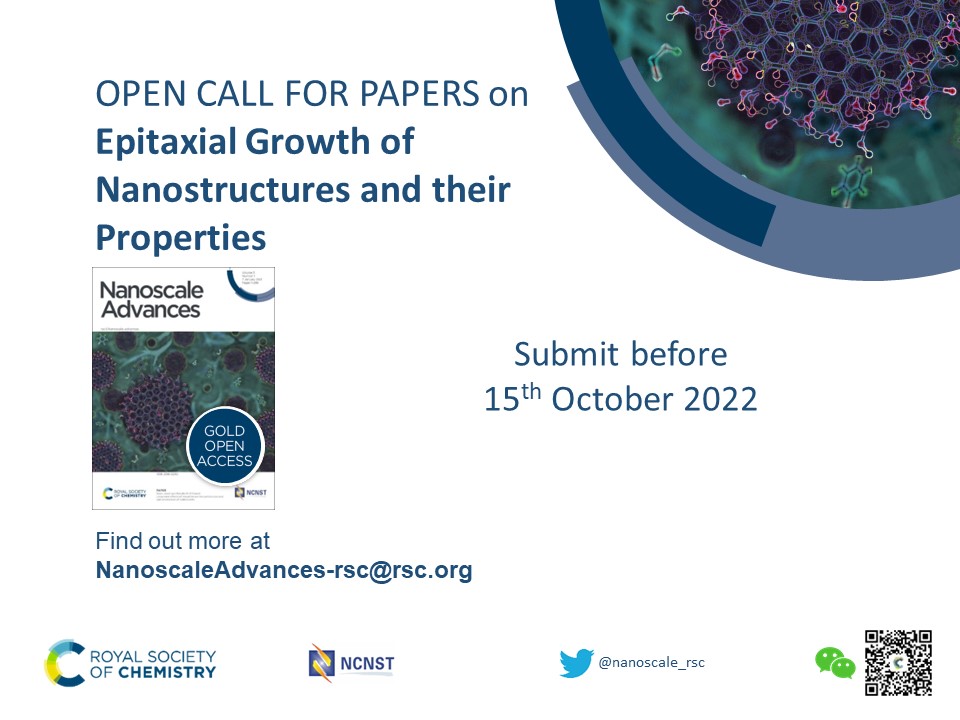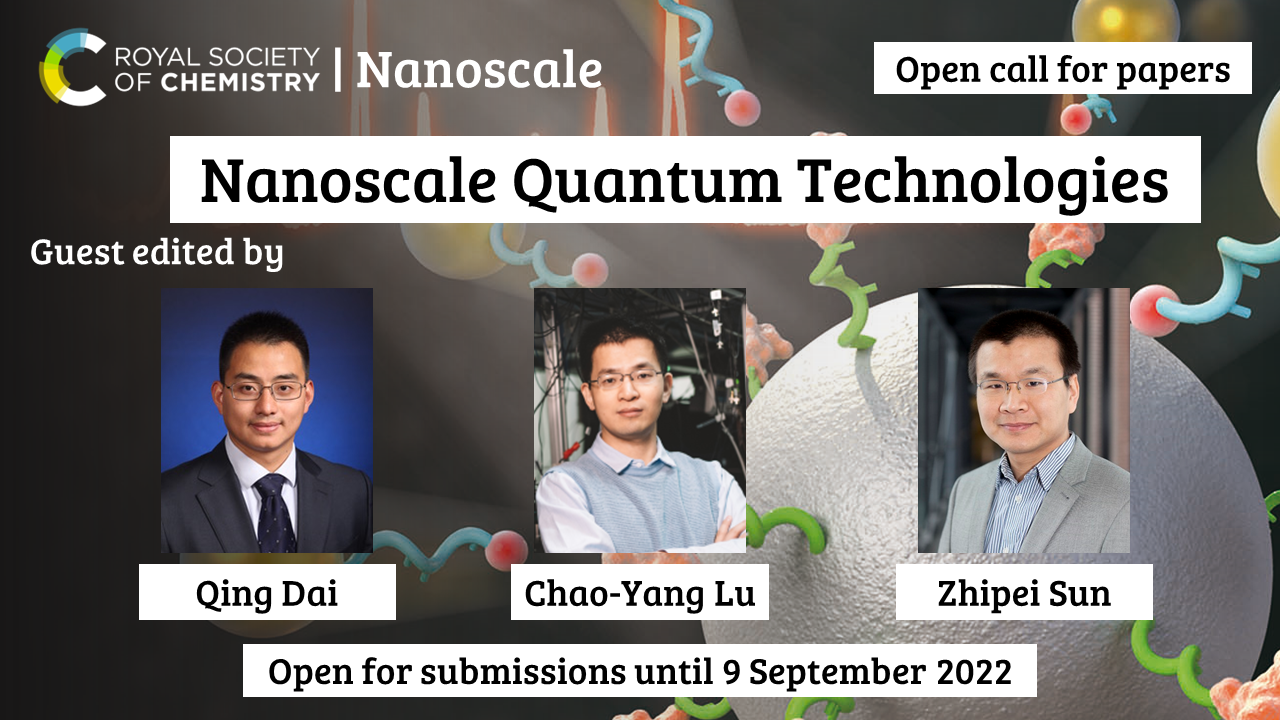Call For Papers: Emerging Concepts in Nucleic Acids
Guest edited by Arun Richard Chandrasekaran, Dhiraj Bhatia, Xiaogang Liu and Prabal Maiti
We are delighted to announce a call for papers for our latest online themed collection in Nanoscale and Physical Chemistry Chemical Physics (PCCP) on Emerging Concepts in Nucleic Acids: Structures, Functions and Applications that is being guest edited by Dr Arun Richard Chandrasekaran (University at Albany, SUNY, USA), Dr Dhiraj Bhatia (IIT Gandhinagar, India), Professor Xiaogang Liu (National University of Singapore, Singapore) and Professor Prabal Maiti (Indian Institute of Science, Bangalore, India).

This cross-journal collection in Nanoscale and PCCP brings recent updates in nucleic acids research under three broad themes: structure, functions and applications. The collection focuses on self-assembly, structure-function relationships, physical chemistry and biophysics of nucleic acids, new structures and new technologies involving nucleic acid modelling and simulation and various applications in biology, medicine, robotics, materials science, computing and other fields.
This call for papers is open for the following article types:
- Communications
- Full papers
Open for submissions until 30th September 2022
If you would like to contribute to this themed issue, you can submit your article directly through the Nanoscale online submission service or the PCCP online submission service. Please mention that this submission is a contribution to the Emerging Concepts in Nucleic Acids: Structures, Functions and Applications collection in the “Themed issues” section of the submission form and add a “Note to the Editor” that this is from the Open Call. The Editorial Office reserves the right to check suitability of submissions in relation to the scope of both the journal and the collection, and inclusion of accepted articles in the final themed issue is not guaranteed.
Please also note that all submissions will be subject to initial assessment and rigorous peer review to meet the usual high standards of Nanoscale and PCCP.
If you have any questions about the journal or the collection, then Edward Gardner, the Development Editor for Nanoscale, would be happy to answer them. You can contact him by emailing the journal inbox.
With best wishes,
Dr Arun Richard Chandrasekaran (University at Albany, SUNY, USA)
Dr Dhiraj Bhatia (IIT Gandhinagar, India)
Professor Xiaogang Liu (National University of Singapore, Singapore)
Professor Prabal Maiti (Indian Institute of Science, Bangalore, India)














